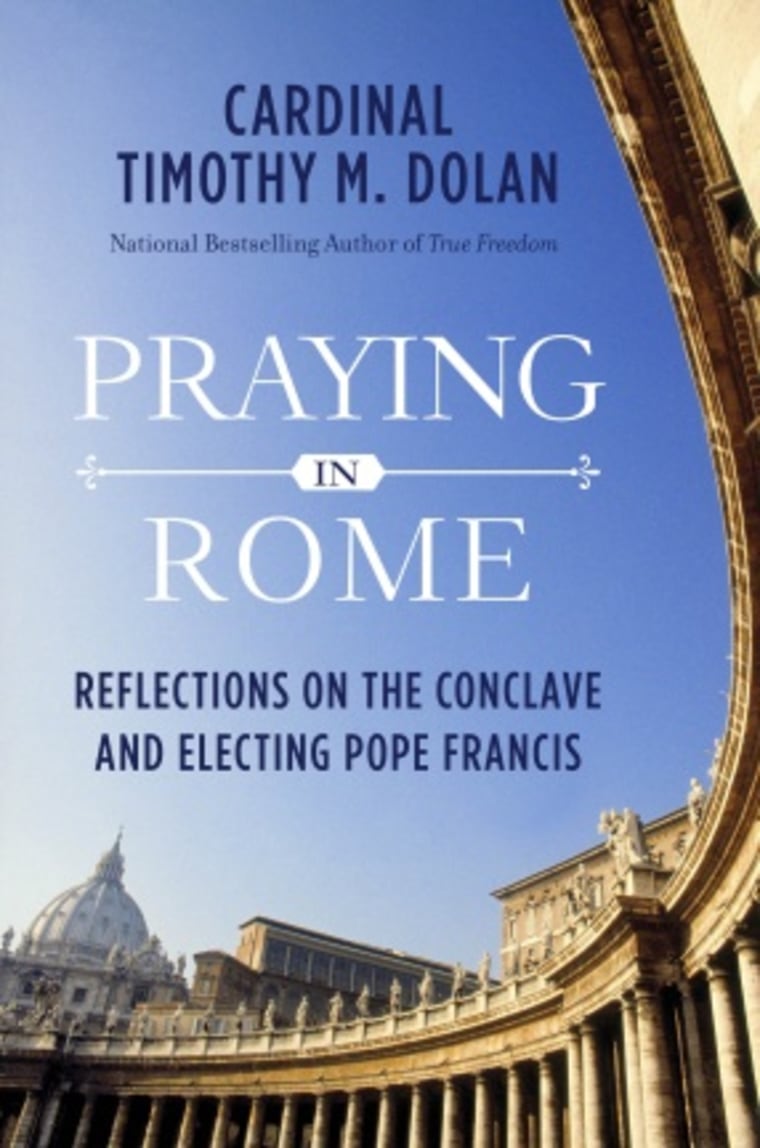Archbishop of New York Cardinal Timothy Dolan provides a a firsthand account of the resignation of Pope Benedict XVI and the Conclave to elect his successor, Pope Francis, as the world watched in anticipation. Here's an excerpt.
It’s Not About Us
People are kind when it comes to how connected they think I am to the Vatican. They assume I knew about the Pope’s resignation far in advance. I’m flattered folks presume I’m on the Holy Father’s speed dial, but that’s not the case.

My first reaction was surprise, shock, and, yes, sadness. I kept thinking to myself how much I was going to miss him. On the other hand, I found myself saying, “Thank God, at least he’s not dead,” since that’s the usual way that God gives the pope a sign that it’s time to go!
To be honest, at first I began to second-guess his decision. I think the whole world did. We all wanted to give him a call and say, “Holy Father, we love you and want you to stay. Even if you can’t do all ‘the stuff’ you usually do, would you reconsider and stay with us as our pastor?”
He has been an amazingly effective pontiff. And part of his extraordinary effectiveness has been his humility. A humble person, to my mind, is someone who is very aware of his or her strengths and weaknesses. Even better, humble people realize their strengths come from God, and their weaknesses come from themselves. Pope Benedict is exceedingly humble. In this case, it seems he knew his limitations.
Eight years ago, a lot of people didn’t think he was going to cut it. They said, “How can he follow John Paul II?” They thought he’d be a cerebral professor who’d write some treatises but would have no sparks. From the beginning of his papacy, though, he knew who he was and who he was not. It’s as if he said to himself, and all of us, “I’m sure not John Paul II. What you see is what you get. I’ll give it my best shot, and with God’s grace, it’ll work out.” And it sure did!
Compared to other pontificates, it wasn’t an exceptionally long reign. But what an impact he had on my life spiritually during that time. In his teaching, in his books, and in his preaching, Pope Benedict affected me in a deeply personal way. After all, he is the one who appointed me archbishop of New York. He is the one who made me a cardinal. And I had come to depend on Pope Benedict’s presence. Every Wednesday I found myself reading Benedict’s audience addresses. Every Sunday I wanted to see what he said at the window, because all of his statements were moving.
And while my admiration for Pope Benedict XVI was already sky-high, it was only enhanced with his resignation. He had such a realistic assessment of the rigors of the office of the Successor of St. Peter that, to use his words, after a careful examination of his conscience, he felt Jesus was saying that it might be time to go. He was no longer able to serve our Lord, His Church, and His people with the strength that is required.
While I trusted 100 percent the wisdom of his discernment, just on a personal level I wondered how he had come to his decision. I could only speculate, but I would say there must have been a lot of peace after his resolution. St. Ignatius of Loyola, the founder of the Jesuits, was a master of discernment, and that’s what he says about the topic. He taught that, if you trust the Holy Spirit, and if you put a lot of thought, time, and prayer into making a decision, once you make it—tough as it is—you’ll sense some interior serenity and peace. I believed the Holy Father felt that way.
I also began to wonder who the Holy Father could talk to as he was deciding. Certainly he talked to God. He does that a lot every day. But most of the time, God doesn’t answer audibly. When people say they actually hear God’s voice, we usually call Bellevue Hospital and ask if they’ve got room for another patient.
Instead, God usually speaks to us in a very gentle way. It seems to me this was an intensely private decision between two people: Pope Benedict XVI and Almighty God.
Excerpted from Praying in Rome by Cardinal Timothy Dolan, Archbishop of New York. Copyright © 2013 by Cardinal Timothy Dolan, Archbishop of New York. Excerpted by permission of Image, a division of Random House, Inc. All rights reserved. No part of this excerpt may be reproduced or reprinted without permission in writing from the publisher.